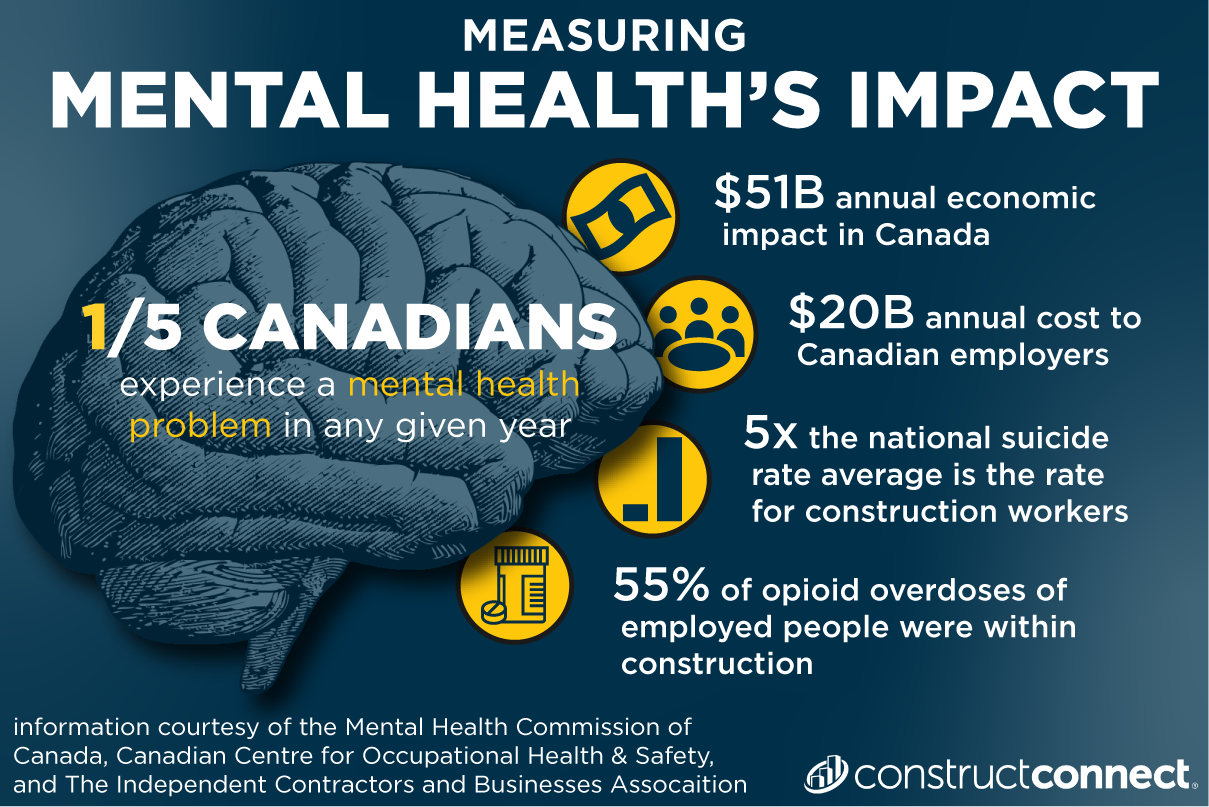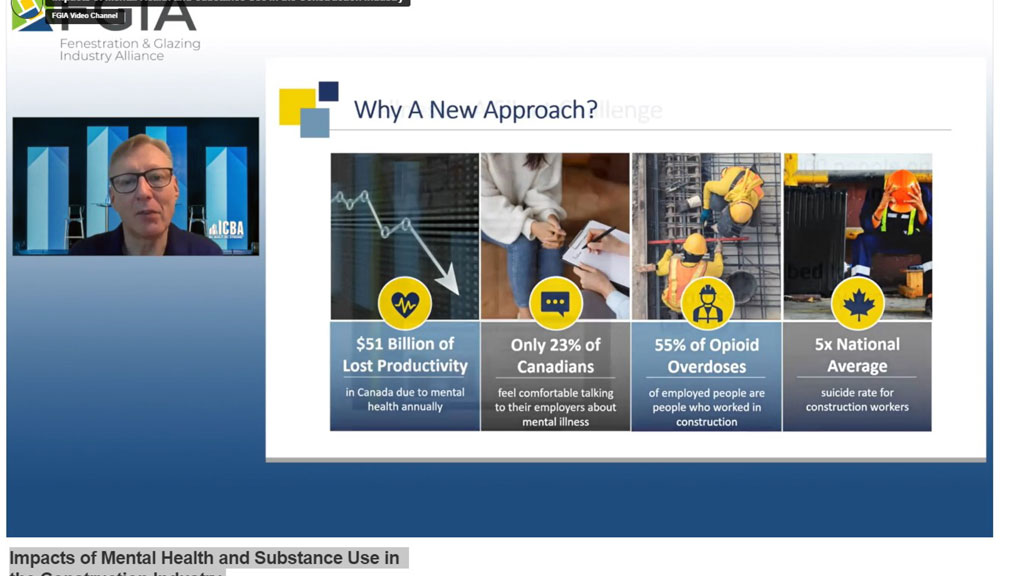The COVID-19 pandemic has exacerbated mental health and substance abuse challenges in construction and the industry must make it easier for workers to speak up if they are struggling and need help.
That was the message from Chris Gardner, president of the Vancouver-based Independent Contractors and Businesses Association (ICBA), at a virtual conference of the Fenestration and Glazing Industry Alliance, which represents window, glazing, curtain wall and insulating glass manufacturers in Canada and the U.S.
Gardner spoke about the importance of dealing with the issues as research has shown suicide and opioid overdose are claiming the lives of far too many construction workers each year. He noted opioid use in particular is ripping through North America and poses a significant problem for construction.
“There really is a tsunami of mental wellness challenges that’s coming at us. We’re sort of standing at the beach watching this wall of mental health challenges come toward us and it’s significant,” he told the conference.
“Mental health challenges run silent and they run deep. People feel awkward and embarrassed to have a conversation, to put their hand up and say, ‘I’m struggling.’ But when they surface, the consequences are often tragic for the individuals, their families and their colleagues and for their community.”
In his presentation, Gardner highlighted the need for communication around mental health and substance use in the industry, as suicide rates in construction are five times the national average. In B.C., 55 per cent of employed individuals who die from an opioid overdose are connected to the industry.

“There’s definitely something that’s significant that is happening across our economy when it comes to workplace wellness, particularly in construction,” he said.
Gardner showed ICBA polling results which indicated that, for the first time, workplace wellness problems are in the list of top issues for construction. When it comes to mental health struggles, ICBA learned only about a quarter of Canadians feel comfortable talking about their issues.
He noted with more than 125,000 people in its benefit plans, the ICBA has a window into the medications and drugs that are being prescribed and those for depression, anxiety and sleep disorders top the chart.
Though a rewarding career, Gardner said construction can be stressful because it is project-driven and there are deadlines to meet. Sometimes workers are in remote areas and living at work camps where they are away from normal activities, putting in longer hours and working shifts, and doing strenuous and seasonal work.
The war between Russia and Ukraine, pandemic lockdowns and supply chain issues have also taken a toll on mental health, he noted, and for some people an outlet is substance abuse.
A number of times a year, contractors must face a situation where a worker has committed suicide onsite or shortly after leaving work, said Gardner, and it is devastating for the business, the worker’s family and colleagues.
The ICBA has developed a free Workplace Wellness Program for its members and their employees built specifically for construction. The program, rolled out a year ago, has language, topics and themes that construction workers can relate to. There are toolbox talks, education pieces and an online portal and program with a single theme each month. Currently, more than 7,000 people are enrolled in the program. By all accounts, said Gardner, contractors and employers have given the program positive feedback.
“The idea is that everybody in the company enrols, right from the owner to folks working in the yard or on a construction site, and everybody walks the program at the same pace and is reading the same material,” explained Gardner.
The intent is not to turn construction project managers and site supervisors into mental health experts, he said, but rather to open up dialogue so workers can reach out for help.
Former professional hockey player Corey Hirsch has been recruited to promote the ICBA program, as there are some similarities between those who play professional sports and work in construction.
“More than 90 per cent of site workers are men,” noted Gardner. “The culture is about keeping their head down and getting the job done. They deal with their pain on the weekends and that is something that we are trying to change through this program.”
According to Gardner, leaders must observe employees and address any issues with compassion.
He suggested employers look for changes in behaviour. Some of these might include fatigue, showing up late, a decline in quality of work, change in physical appearance or spending more time alone.
While it’s a big challenge, Gardner said the numbers speak to what’s happening on jobsites and there’s more work to be done.
“Our focus is very clear. We just want to normalize the conversation, make it easier for people to put up their hand and say, ‘Hey, I’m struggling,’ and then for people to respond and say, ‘Here’s how we can help.’”











Recent Comments
comments for this post are closed